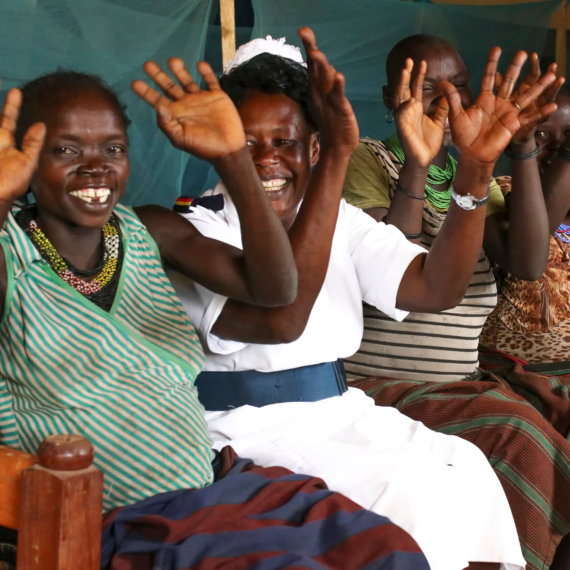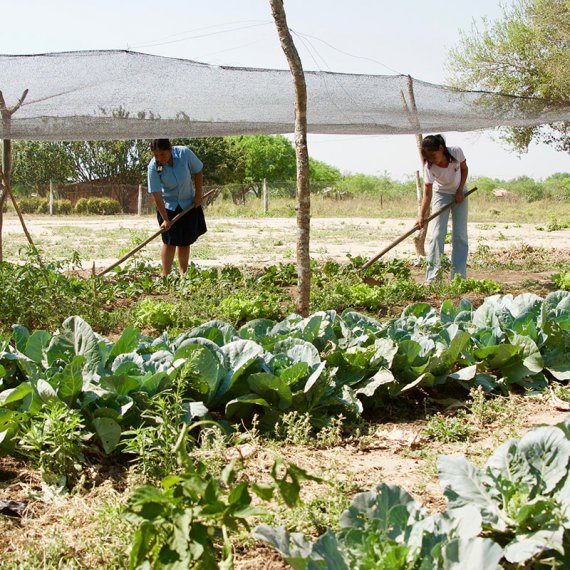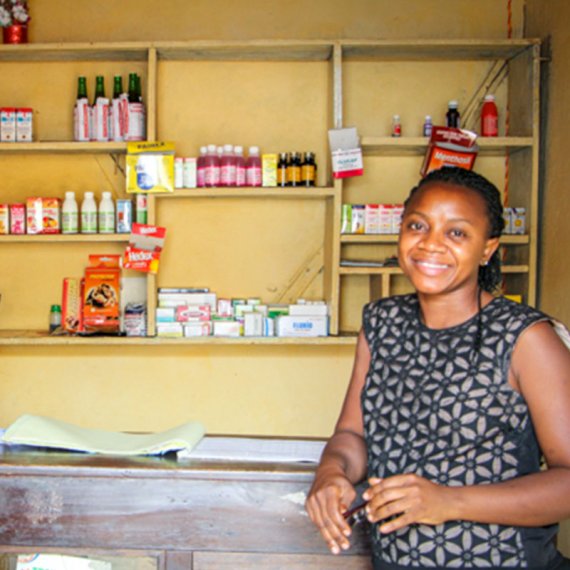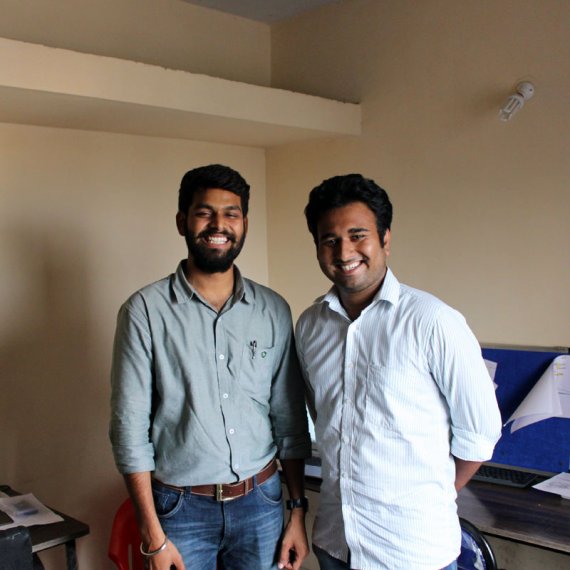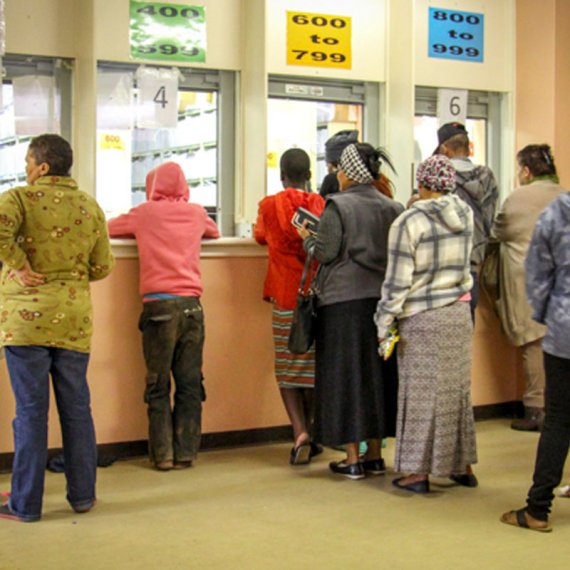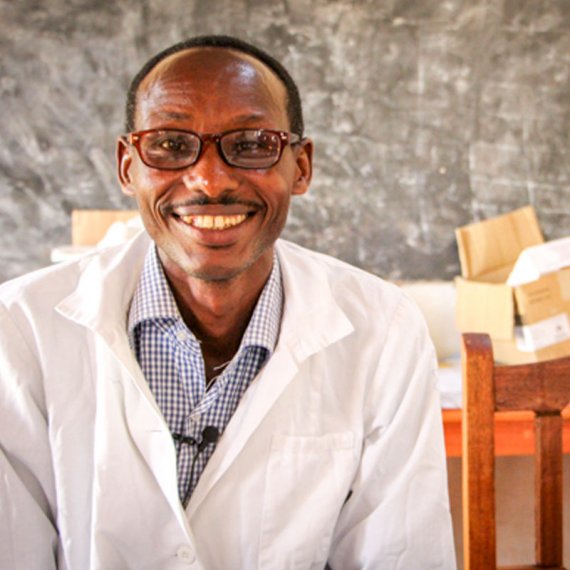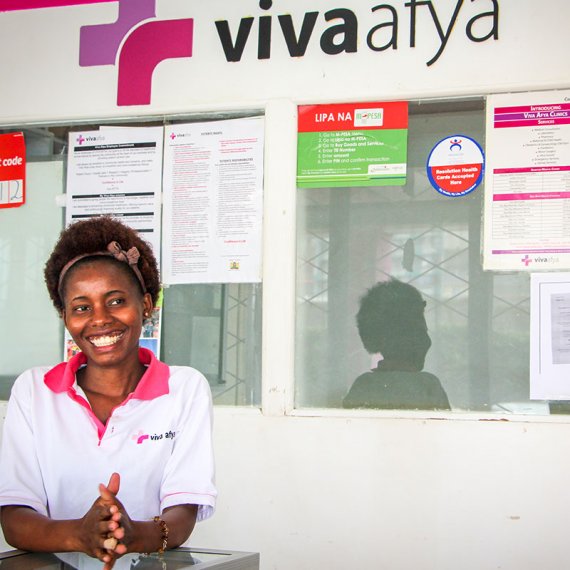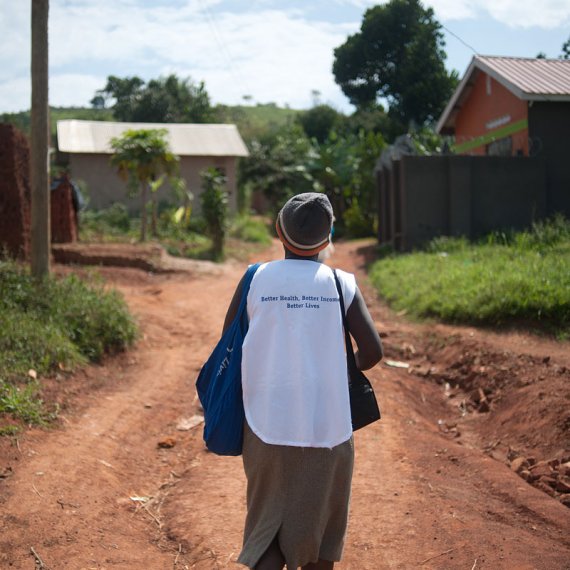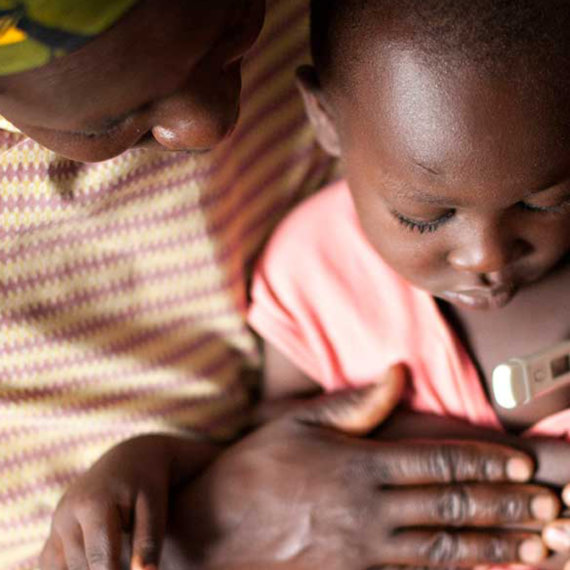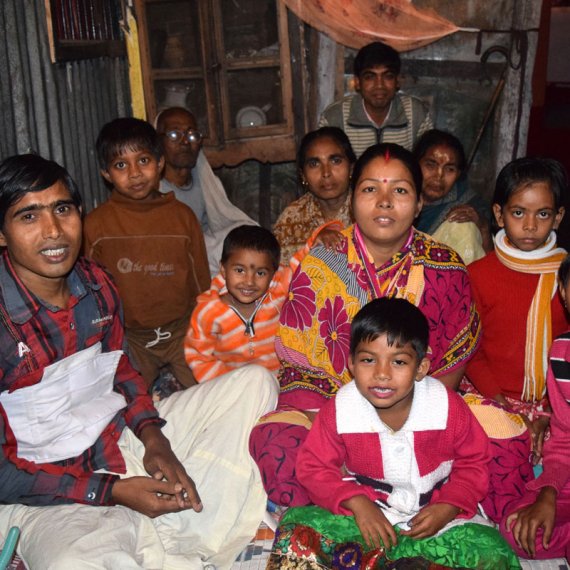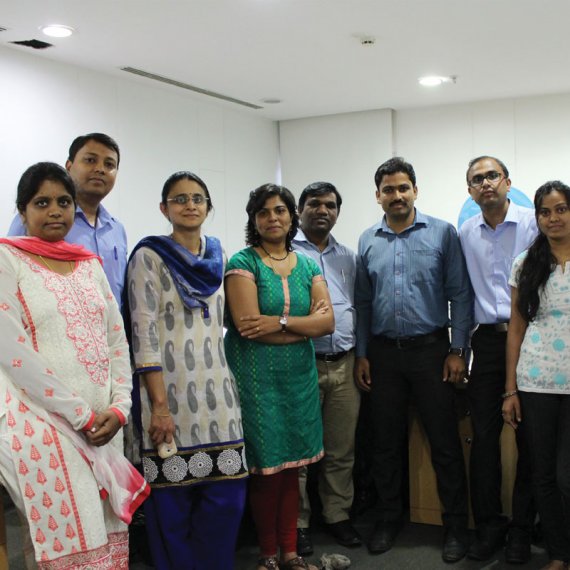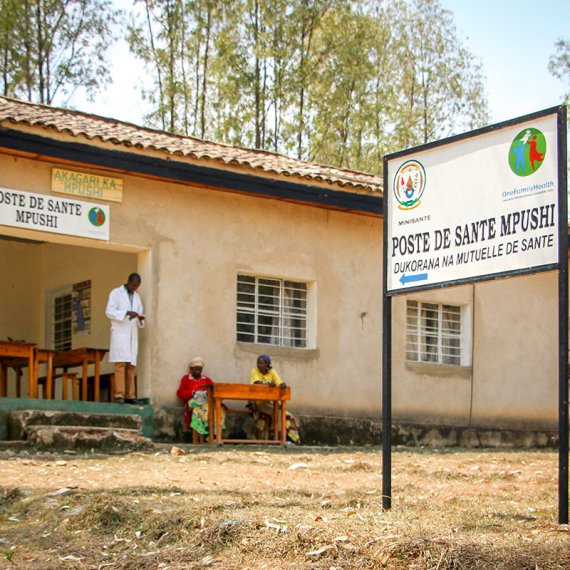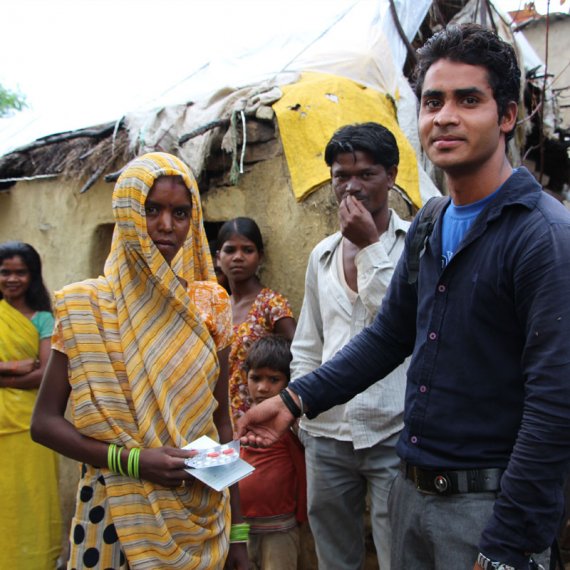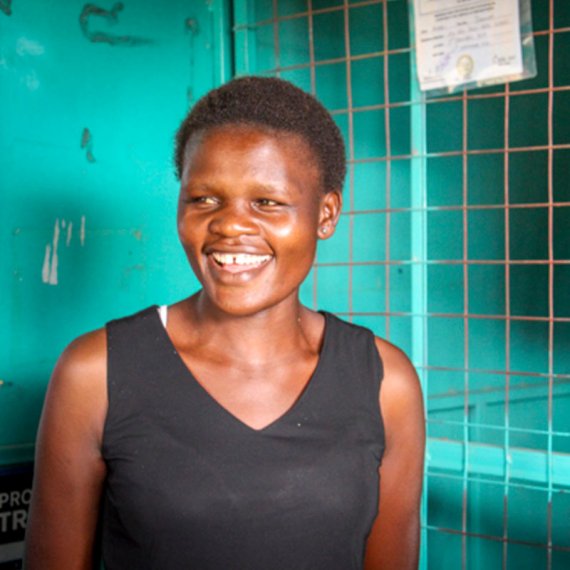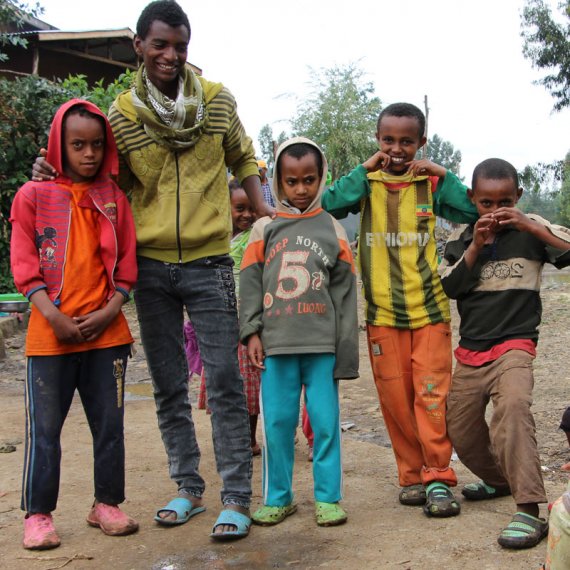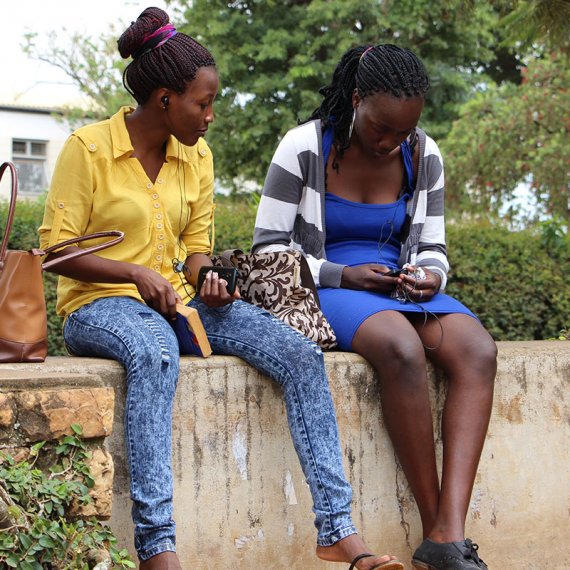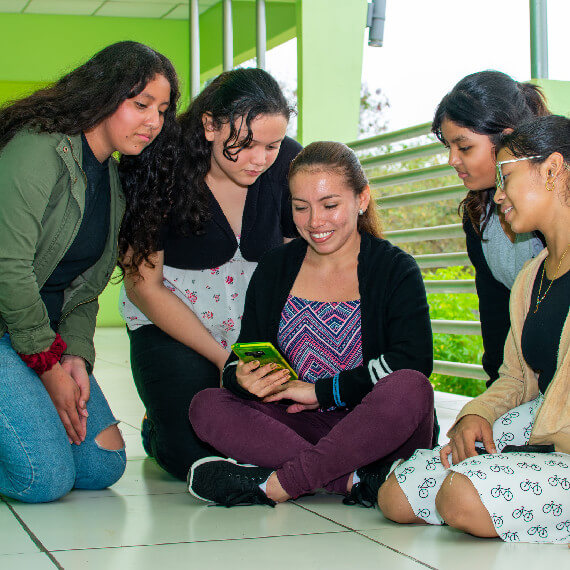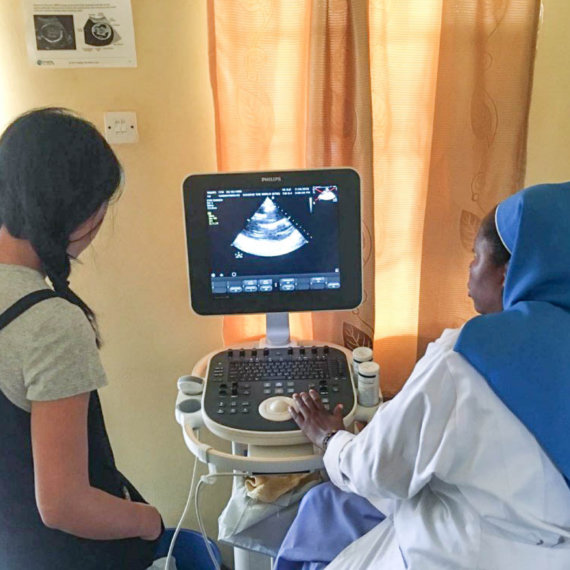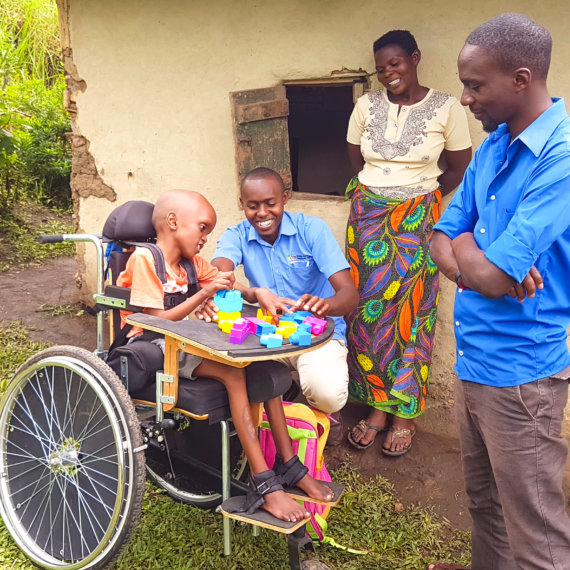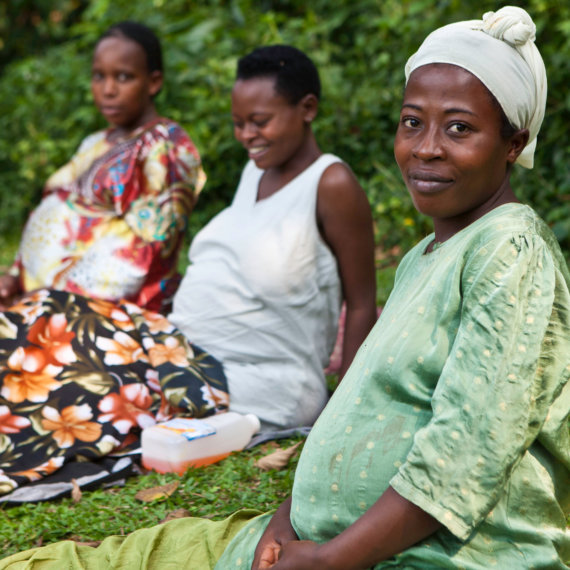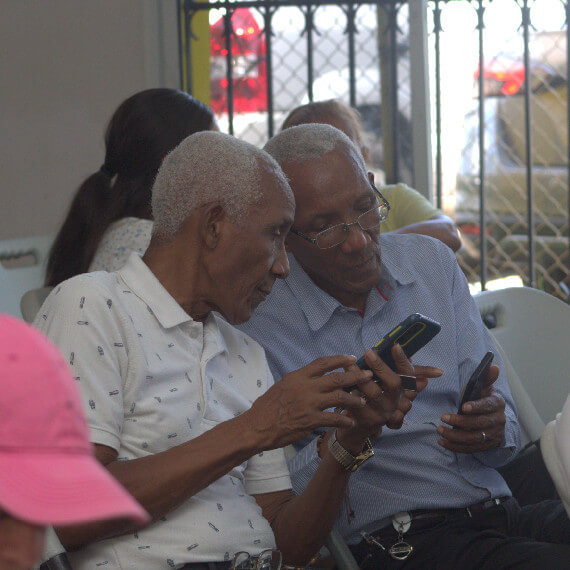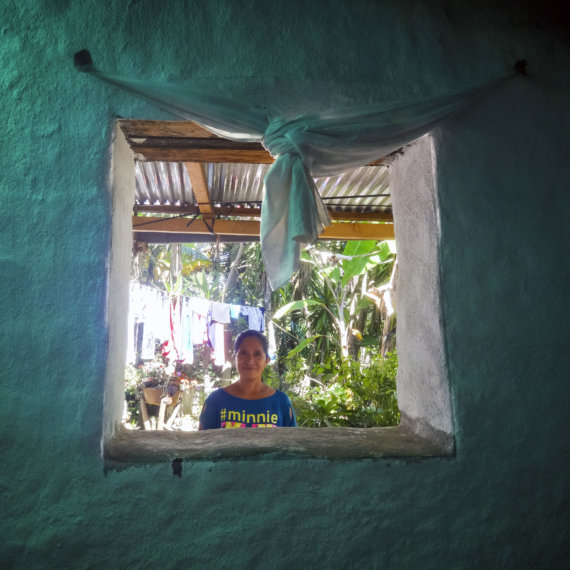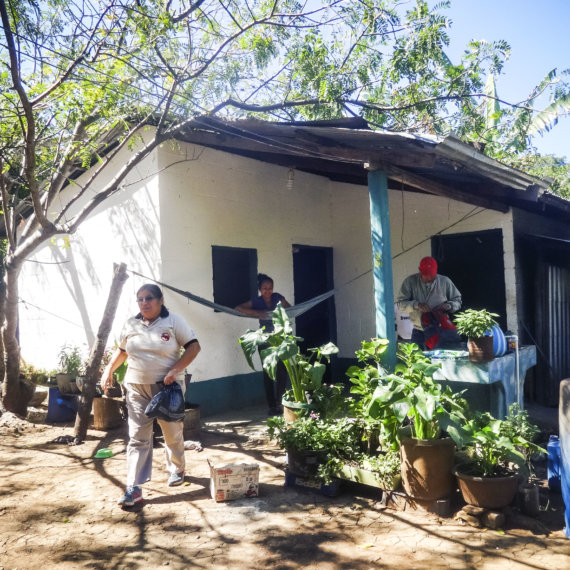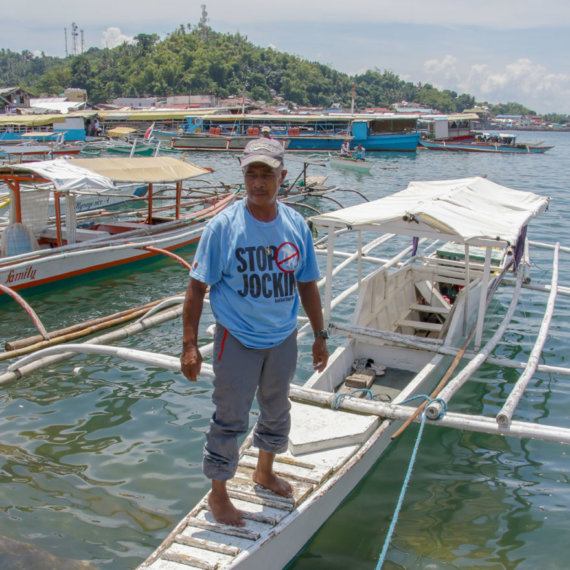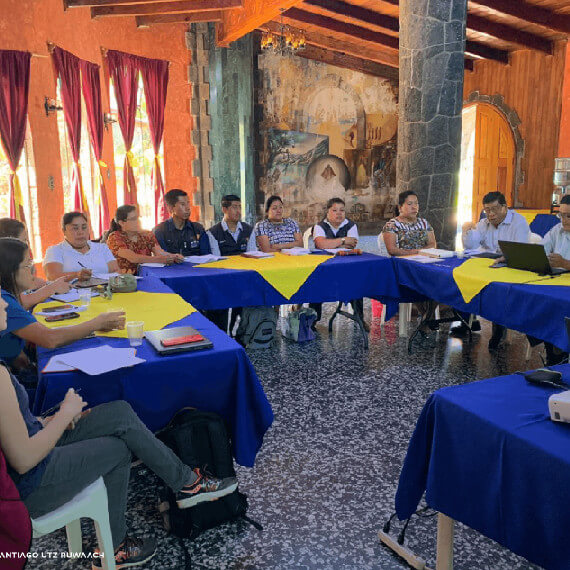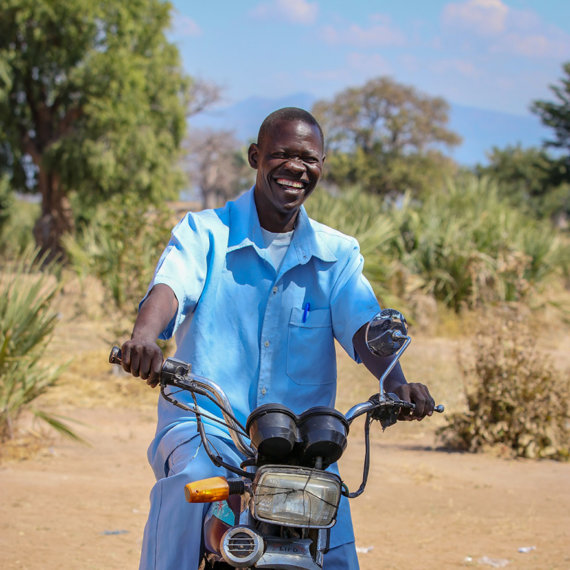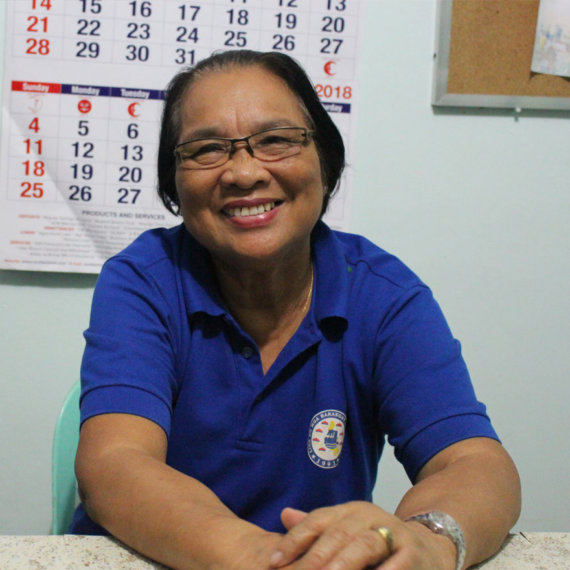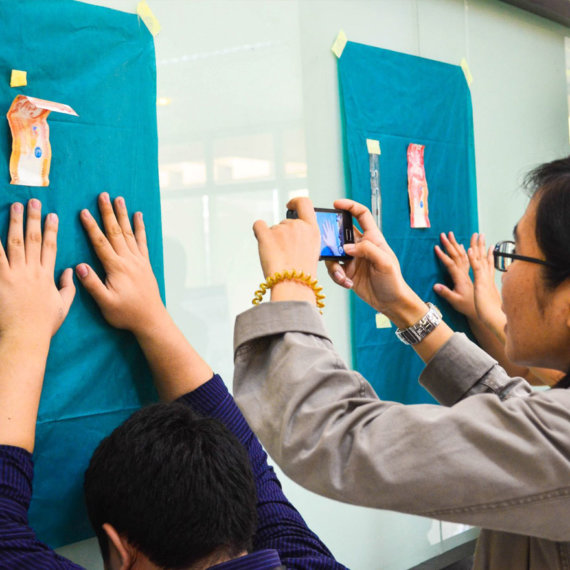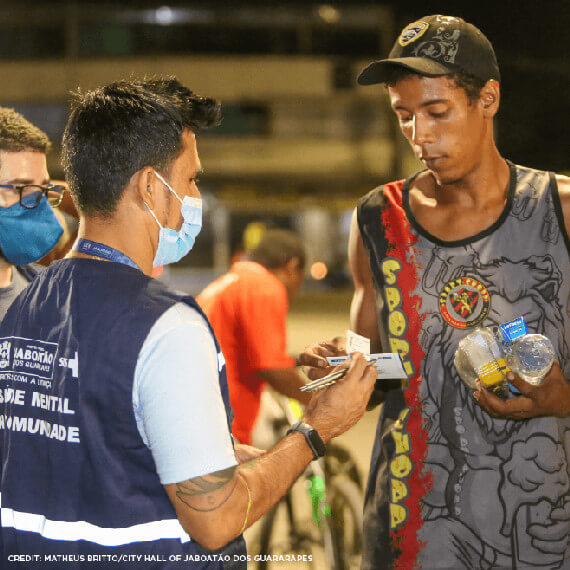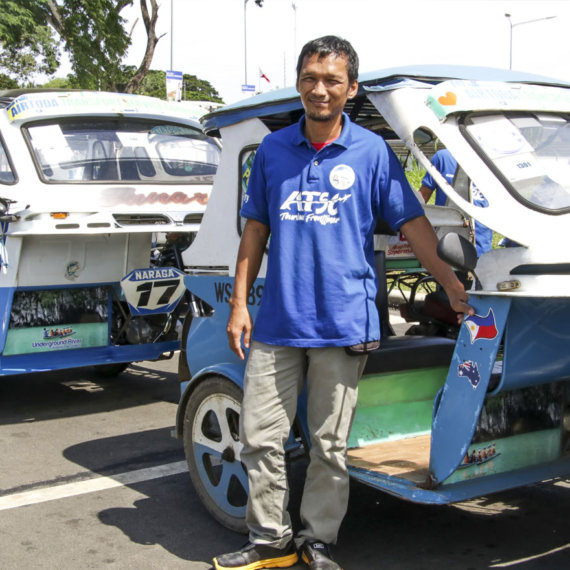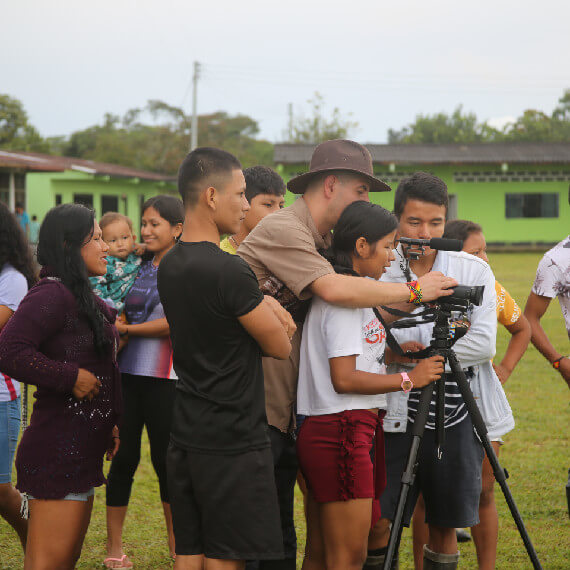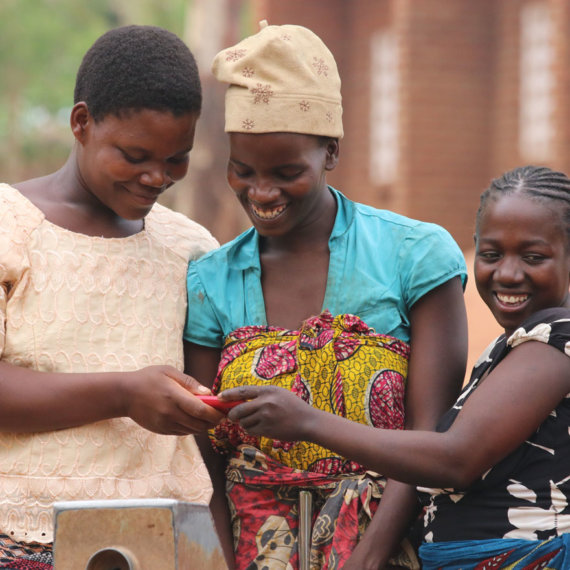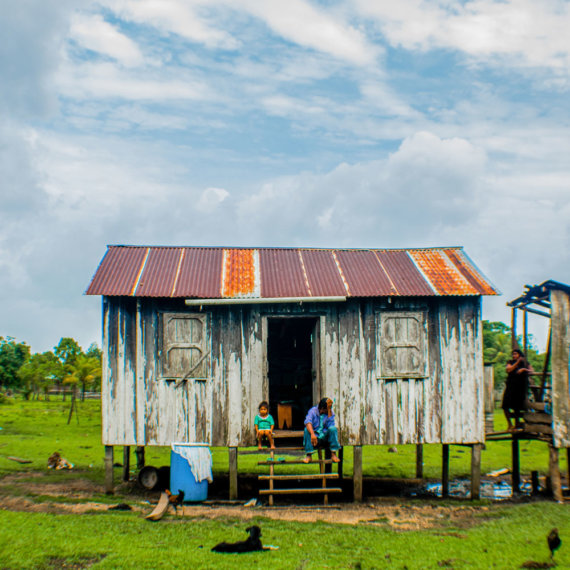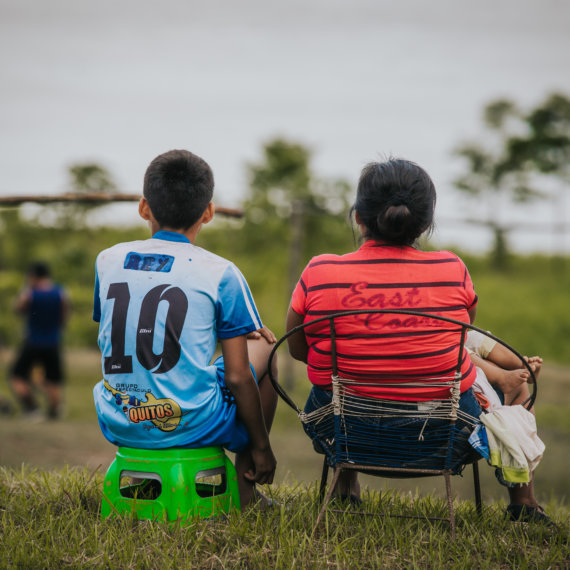RIDERS FOR HEALTH
Bridging the last mile health care delivery gap in rural communities in Africa through an effective transportation model.
CONTINENT
Africa

Country
Lesotho
Continent
Africa
Country
Lesotho, Liberia, Kenya, Zimbabwe, Zambia, Malawi, the Gambia, Nigeria
Founding year
1990
Organizational structure
Mostly registered in countries of operation as a not-for-profit or nongovernmental organization
Health focus
Primary health care
Areas of interest
Transport and logistics, Last mile distribution
Health system focus
Medical products and technologies, Service delivery
CHALLENGES
For millions of people across Africa, access to health care services remains a challenge. In sub-Saharan Africa, over 70% of people live in rural areas, where the best roads are often little more than dirt tracks (World Bank, 2015). This poses significant challenges both for patients trying to access health facilities, and for health workers conducting outreach work in rural areas. Although experts advocate for transport to be the third largest resource requirement for a ministry of health, after personnel and drugs, it is frequently neglected. The investment in trained health workers, drugs, vaccines and other medical supplies often fails to reach the people who need it most.
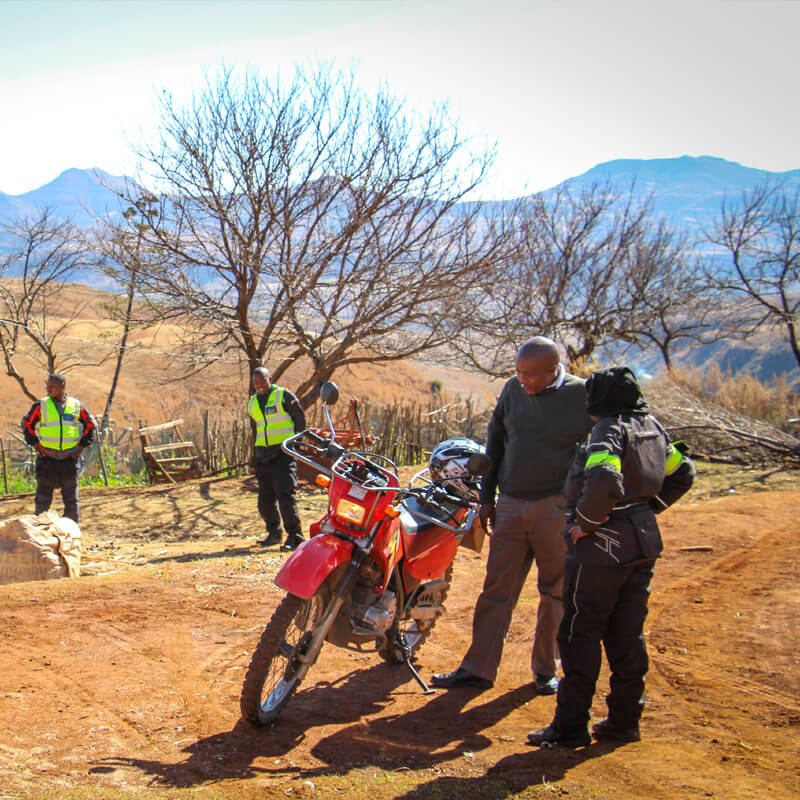
“No wonder nobody is getting any health care. No wonder people are dying of things they shouldn’t be dying of, not getting the right nutrition and stuff, because they are out there neglected. There are no roads, there are no service stations, no petrol stations, there is nothing out there, no infrastructure. Nobody is being trained. It’s very, very undervalued, the mobility issue. This is what we are going to do.”
– Andrea Coleman, Co-founder, Riders for Health
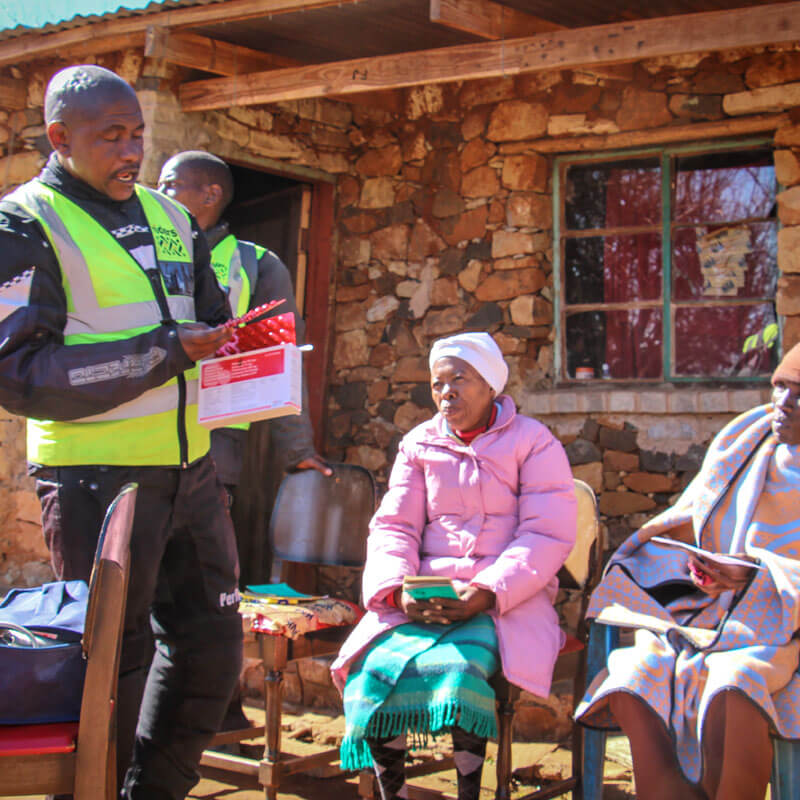
INTERVENTION
Riders for Health (Riders) improves access to health care for rural populations by providing transportation services – including vehicle management, training and support services – to national governments and health care delivery organizations in Africa. Riders enables the existing health care system to be more effective by managing and maintaining a transport network of motorcycles and vehicles, which links the different elements of the health care system together. Certified instructors combine theoretical and practical training to deliver courses at all levels of expertise, specializing in training health workers who utilize vehicles to reach communities, particularly over rough roads and difficult terrain. Workers are trained not only to ride, but also to perform their own maintenance and basic repairs, and to adhere to rigorous safety standards. By equipping these riders with a motorcycle and providing appropriate training and maintenance, health workers are able to increase coverage and enhance health care accessibility to their respective populations. Riders provides additional support services, including supply chain distribution, diagnostic sample transport, and medical emergency transportation.
“I do the vaccinations in the community. The motorbike helps me to go to those villages where the car cannot reach, so I go by motorbike.”
– Registered nurse and rider
Across all eight countries of operation, Riders serves 21.49 million people and manages 1 700 vehicles, which collectively travelled just under 13 million kilometres in 2014. Annually, the mobilized outreach health workers in Lesotho have over 45 000 extra health service interactions, and can typically reach four times further on a motorcycle and see six times more patients.
Not only is access to health care improved, it is done so in a reliable, predictable and cost-effective way. The per-kilometre fee model is structured into manageable monthly payments. It allows the Ministry of Health to plan ahead and budget accordingly, reducing unscheduled costs and fluctuating expenditures.
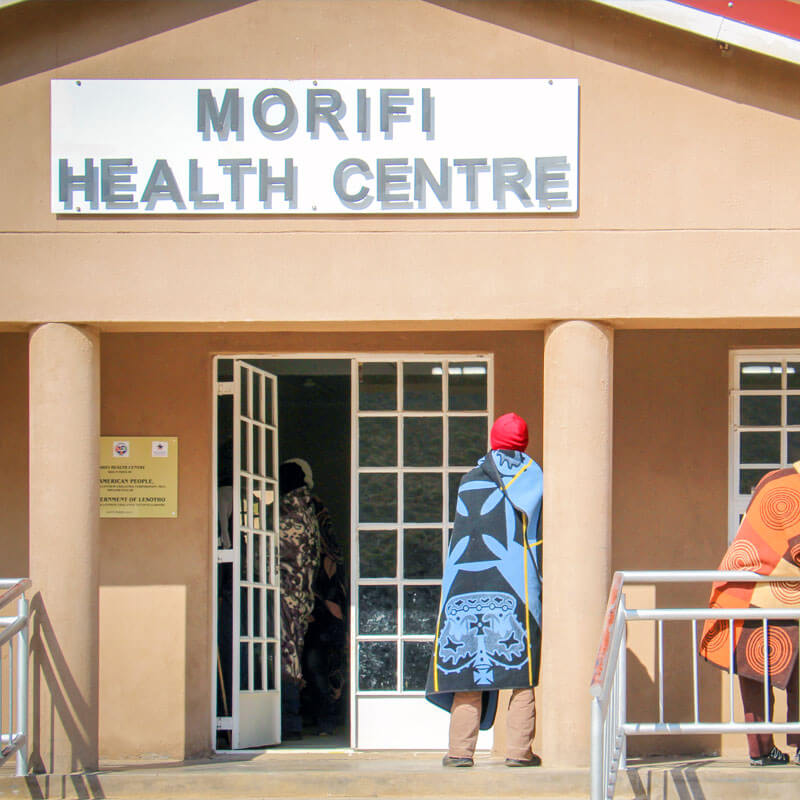
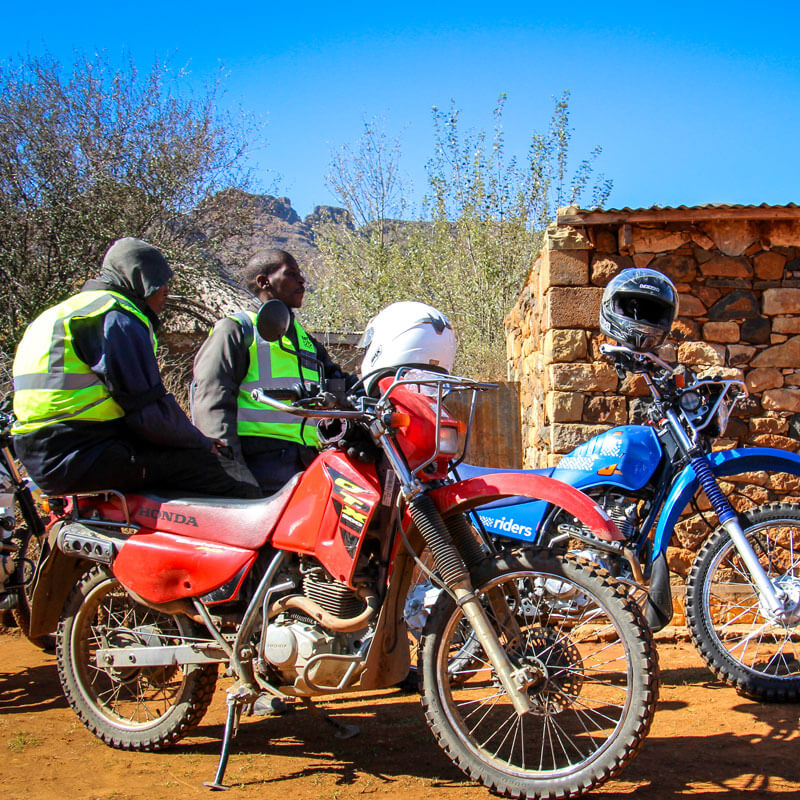
CASE INSIGHTS
The Riders case study shows how social innovation organizations can be important contributors to strengthening the delivery capacity of the existing system by addressing areas where the system lacks expertise or resources. Riders works closely with the organizations and governments which contract its services to understand the needs and align strategies, which is important to ensure a trusting, working relationship and sustainability of the intervention. It also shows how an organisation can have strong standardized services offerings but remain flexible to the cultural needs, contextual reality and regulations of each country it works in.
“With a bike, you can go anywhere you want to. It helps me do my job because, before Riders, I would just sit in the clinic or go to the nearer villages, but now I can go to the furthest places.”
– Environmental Health Officer, rider and trainer

